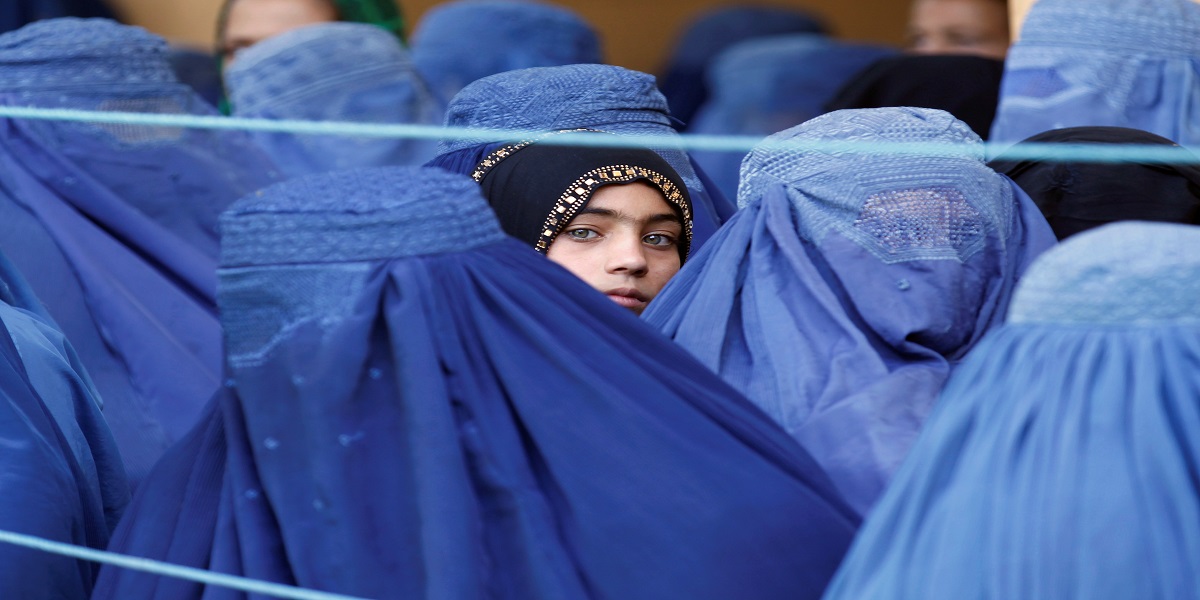Women in Afghanistan reacted angrily on Sunday when the Taliban issued a decree asking women to cover themselves completely in public, including their faces, or stay home, claiming that the policy would essentially cage them.
Hibatullah Akhundzada, Afghanistan’s supreme leader and Taliban chief, signed the edict on Saturday, threatening to return freedoms to the harsh rule established by the party when it was in control from 1996 to 2001.
It also contradicts pledges to the international world about a softer rule made after the Taliban gained power in August of last year.
“I’m being held captive. I can’t live in freedom, and the Taliban have complete control over my social life “According to AFP, activist Tahmina Taham, a former government employee who lost her job after the Taliban retook power last year,
“Forget about being a woman; my rights as a human being have been taken away.”
Women working in government jobs who do not follow the order “shall be fired,” according to Akhundzada’s rule, and employees whose wives and daughters do not comply will be fired as well.
The UN mission in Afghanistan criticised the directive, saying it could “stretch engagement” between the organisation and the international community, which has tied the restoration of aid to the group’s compliance.
On Sunday, there were no signs of Akhundzada’s directive being obeyed in Kabul, with several women visible on the streets without their faces covered.
Fatima Rezaie, a resident of Herat, a western city considered liberal by Afghan standards, said many women are now stubborn and refuse to accept reforms imposed by force.
“Women are different today than they were 20 years ago,” Rezaie told AFP.
“They are firm and steadfast today, ready to stand up for their rights.”
However, ladies were seen wearing the burqa in Kandahar, the Taliban’s de facto power centre, where the reclusive Akhundzada is said to stay.
In the 20 years between the Taliban’s two reigns of terror, girls were allowed to attend school and women were allowed to work in all fields, while significant societal restrictions remained.
However, since their return, the Taliban have placed harsh limits on women’s rights, prohibiting females from holding numerous government jobs, receiving secondary education, and travelling alone outside of their communities.
The new “regulation will have a very detrimental influence on the personal and working lives of women,” Taham said, adding that her sister had to drop out of school after her institution refused her entrance to a mixed-gender class.
Many people are outraged at the loss of hard-won liberties.
“Where does it say that women’s hands and faces should be covered (in Islam)?” Azita stated
However, many women are concerned about the safety of their male guardians as a result of Akhundzada’s edict.
“I’ve opted to wear a full-covering hijab because I don’t want my family’s males to be punished or dishonoured,” said Laila Sahar, a former NGO worker who used a pseudonym to conceal her identity.
“A woman’s family, children, and boyfriend are her weak points. The Taliban have cleverly exploited her vulnerability to force her to wear a headscarf “Hoda Khamosh, a famous campaigner, told AFP.
“However, no woman will accept staying at home or quitting her job.”





















